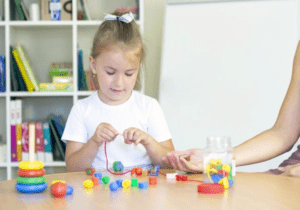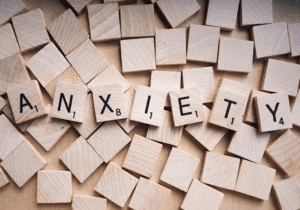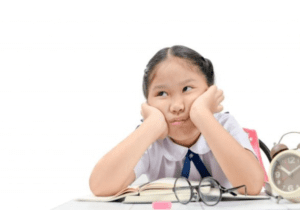Effectiveness of Authoritative Parenting in Fostering Autonomy
This article has been researched and written by Hacer Subasi. AI has not been used in producing this article.
Initially, a newborn relies completely on their parent, but over time, they transition from being an object into a subject, oscillating harmonically between dependence and independence—an essential process for developing a true sense of autonomy.
Among the three well-known parenting styles— permissive (liberal), authoritarian, and authoritative – each shapes this developmental journey differently. Permissive parenting aims to create a stress-free and nurturing environment, but often lacks the structure necessary for long-term growth. Authoritarian parenting, on the other hand, is a rigid, rule-based approach that prioritizes obedience and discipline over warmth and flexibility. Parents set high expectations with little emotional engagement, enforcing strict rules through harsh discipline and fear-based motivation. With one-way communication and minimal room for autonomy, this style can lead to low self-esteem, social withdrawal, and difficulty in independent decision-making.
In contrast, authoritative parenting is widely regarded as the most effective approach, striking a balance between guidance and independence. By offering both warmth and clear boundaries, it supports a child’s evolving autonomy while ensuring they receive the necessary structure for healthy emotional and cognitive growth.
The Effectiveness of Authoritative Parenting
As a balanced parenting strategy—often referred to as authoritative parenting—blends the warmth and responsiveness of liberal/permissive parenting with clear expectations and structure, fostering emotional resilience. This style encourages autonomy and independent thought while maintaining a well-defined framework that supports a child’s development. Unlike permissive parenting, it provides necessary guidance without being overly controlling. Authoritative parenting is associated with positive outcomes such as:
Better Emotional Regulation:
Because authoritative parents set clear boundaries while providing emotional support, children learn to manage their emotions effectively. They understand how to navigate conflicts and express themselves appropriately.
Higher Self-Esteem and Confidence:
Children raised in authoritative households receive consistent encouragement and support while learning to take responsibility for their actions. This fosters self-worth and confidence in their abilities.
Improved Academic Success:
Authoritative parents emphasize the importance of education and effort, helping children develop a strong work ethic and perseverance. These children tend to perform better academically compared to those raised in permissive or authoritarian households.
Stronger Social Skills and Moral Development:
Children raised in authoritative environments learn the value of cooperation, empathy, and respect. Since they are encouraged to express their thoughts while respecting rules, they develop strong interpersonal skills and a solid moral compass.

The Relationship Between Authoritative Parenting and Autonomy
Parenting is not the art of making a child happy; it is the art of doing what is right for the child with a developmental perspective. Autonomy does not equate to the absence of boundaries. Rather, it signifies a child’s ability to take initiative within the limits of the authority they are developmentally entitled to.
When children are deprived of the rights and responsibilities appropriate for their developmental stage, they may attempt to assert control in an asymmetrical and developmentally inappropriate manner. This is where authoritative parenting plays a crucial role—it fosters autonomy while maintaining necessary guidance. By providing children with structured opportunities to make independent decisions and take responsibility for their actions, authoritative parenting ensures that autonomy develops in a healthy and balanced way. This is achieved through:
Encouraging Decision-Making: Unlike authoritarian parenting, which imposes strict rules, authoritative parents allow their children to make choices within appropriate limits. This helps children develop critical thinking and problem-solving skills.
Providing Constructive Feedback: Instead of punishing mistakes harshly, authoritative parents use them as learning opportunities. This helps children understand the consequences of their actions without feeling overly restricted.
Supporting Exploration with Boundaries: Authoritative parents encourage children to explore their interests while ensuring they remain within safe and ethical limits. This balanced approach helps children develop independence without feeling abandoned or unsupported.
Promoting a Growth Mindset: By emphasizing effort, perseverance, and responsibility, authoritative parents instill a mindset that values growth and self-improvement.
This prepares children to face real-world challenges with resilience and adaptability.
While liberal parenting may appear to offer children autonomy, its lack of structure can lead to negative developmental outcomes, including poor self-discipline, academic struggles, and difficulty managing emotions. In contrast, authoritative parenting strikes a balance between setting firm expectations and nurturing independence, ultimately fostering a strong sense of autonomy.
By providing a supportive yet structured environment, authoritative parents equip their children with the tools necessary for success in various aspects of life, from academic achievement to social relationships and emotional resilience.
Does Social Media Cause Depression?
According to recent estimates, roughly 4 billion people worldwide use various social media platforms, including Facebook, Twitter, Instagram, and LinkedIn. It’s not hard to believe. When you take a look around a crowd…
Child Development: Play Therapy in Dubai
Every child deserves to feel safe, empowered, understood, connected, and loved. Play therapy is based on the foundation of providing a safe environment for children to process their emotions and develop the social, em…
The Future of Depression Treatment
According to the World Health Organization (WHO), depression impacts more than 264 million people globally. Once diagnosed, depression treatment can be by medications, psychotherapy, or a combination of the two. While…
How to Talk to Your Therapist When You Have Social Anxiety
Social anxiety disorder (SAD), also called a social phobia, is characterized by intense fear or anxiety of being negatively evaluated, judged, or rejected in a social situation. Individuals with social anxiety often …
Managing Depression During Social Isolation
The outbreak of the global coronavirus pandemic is stressful for many people. Since the World Health Organization (WHO) declared the COVID-19 outbreak a global pandemic, regions across the world have mandated quaran…
What are Cognitive Behavioral Therapists?
Cognitive behavioral therapy (CBT) is a common type of talk therapy (psychotherapy) that has been demonstrated effective for a range of mental health struggles including anxiety disorders, depression, substance abuse …
Managing COVID-19 – Related Anxiety
The recent increase of COVID-19 cases in Europe and in the rest of the world has seen a great increase of strong emotions, such as overwhelming fear and worry, in our community. Despite the fact that the infection has…
What to Expect at Your First Family Therapy Session
Are you feeling a bit nervous about your first family therapy session? It’s very common to feel a bit apprehensive before starting any type of therapy. Therapy involves sharing personal information and intimate detail…
What do you really know about ADHD?
ADHD, or attention deficit disorder, is a commonly known mental health disorder and can be easily described by teasing apart its acronym. Most of us have been made aware of the condition through social media, advertis…
Taking Your First Steps to Seeing a Therapist
More often than not, the first step people take towards overcoming their mental illnesses, is making the decision to talk to someone about it, whether it’s a friend or a professional. It doesn’t help that our cultural…











